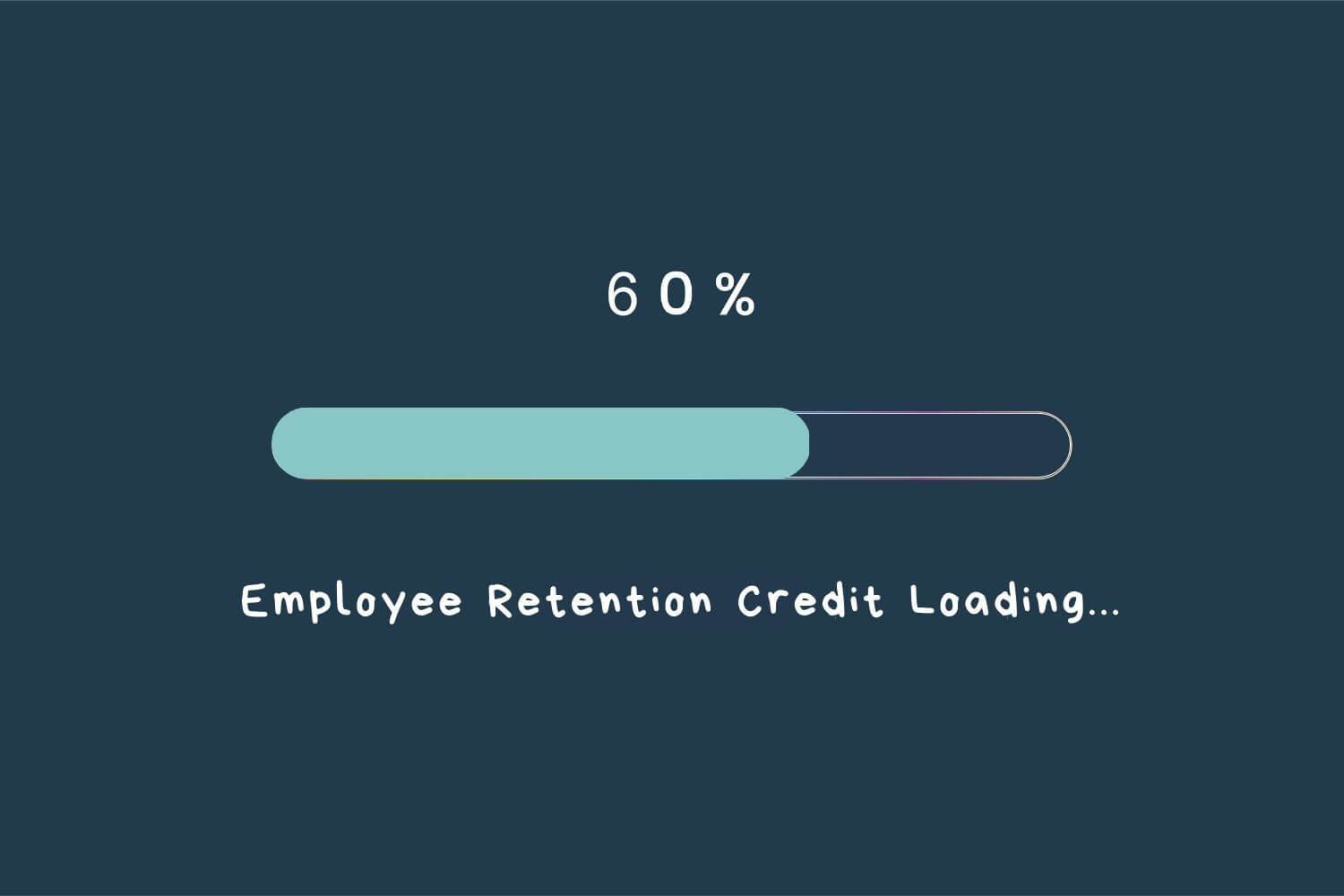Home>Finance>How Long Does It Take To Establish Business Credit


Finance
How Long Does It Take To Establish Business Credit
Modified: March 10, 2024
Learn how long it takes to establish business credit and finance your ventures. Explore strategies and tips for building a strong credit profile.
(Many of the links in this article redirect to a specific reviewed product. Your purchase of these products through affiliate links helps to generate commission for LiveWell, at no extra cost. Learn more)
Table of Contents
- Introduction
- What is Business Credit?
- Why is Business Credit Important?
- Factors That Affect the Time to Establish Business Credit
- Steps to Establish Business Credit
- Building a Good Business Credit Profile
- Dos and Don’ts of Building Business Credit
- How Long Does It Take to Establish Business Credit?
- Monitoring and Managing Your Business Credit Score
- Conclusion
Introduction
Establishing a strong credit profile is crucial for any business, as it allows for easier access to financing, improved vendor relationships, and increased credibility in the eyes of customers and clients. While personal credit is often the first thing that comes to mind, it’s equally important for companies to build and maintain solid business credit. But how long does it take to establish business credit?
In this article, we will explore the intricacies of business credit and delve into the factors that impact the time it takes to establish it. We will also provide you with essential steps to help you build and maintain a solid business credit profile. Finally, we will address the question of how long it typically takes to establish business credit and provide insight on monitoring and managing your credit score.
Whether you are starting a new business or looking to improve your existing credit profile, understanding the ins and outs of business credit is paramount to your financial success. So, let’s dive in and explore the world of business credit together.
What is Business Credit?
Business credit, also known as commercial credit, refers to the creditworthiness of a business entity separate from its owners. It is an evaluation of a company’s ability to honor its financial obligations, such as repaying loans or paying out invoices. Just like personal credit scores, each business is assigned a unique credit profile that reflects its creditworthiness and financial history.
Business credit plays a vital role in the financial ecosystem, impacting a company’s access to funding, trade relationships, and overall credibility. Lenders, suppliers, and even potential partners often rely on a business’s credit profile to evaluate its financial stability and risk levels. A strong business credit profile can open doors to better loan terms, higher credit limits, and more favorable payment terms with vendors.
Unlike personal credit, which is typically based on factors such as individual payment history and debt-to-income ratio, business credit is assessed based on various factors. These factors may include the length of the company’s credit history, its payment history with vendors and lenders, the amount of credit extended to the business, and any outstanding debt or legal judgments.
Building solid business credit requires establishing relationships with vendors and lenders who report payment history to credit bureaus, such as Dun & Bradstreet, Experian, or Equifax. These credit bureaus compile data on businesses’ creditworthiness and generate credit scores or ratings based on the information received.
When it comes to business credit, it’s important to note that it is separate from an individual’s personal credit score. While a business owner’s personal credit can impact a company’s creditworthiness, it is essential to keep personal and business finances distinct. Establishing business credit helps protect personal assets and liability by creating a clear separation between the individual and the business entity.
Now that we have a grasp of what business credit entails, let’s explore why it’s so crucial for the success of a company.
Why is Business Credit Important?
Business credit plays a pivotal role in the financial health and growth of a company. Here are several reasons why having a strong business credit profile is essential:
- Access to Financing: A solid business credit profile increases your chances of obtaining financing. Lenders, including banks and alternative finance providers, consider your creditworthiness when evaluating loan applications. A higher credit score and positive credit history improve your chances of securing loans with more favorable terms and lower interest rates.
- Vendor Relationships: Building good business credit allows you to establish solid relationships with vendors and suppliers. With strong credit, you can negotiate favorable payment terms, higher credit limits, and discounts, giving you the flexibility to manage your cash flow effectively.
- Expansion and Growth Opportunities: When your business credit is strong, it opens doors to expansion and growth. Whether you’re looking to lease office space, acquire new equipment, or expand your operations, a solid credit profile gives you more options and bargaining power. Lenders and vendors will be more willing to work with you, knowing you have a reliable track record.
- Separation of Personal and Business Finances: Establishing business credit helps you maintain a clear separation between personal and business finances. By keeping your personal and business credit separate, you protect your personal assets and reduce personal liability. It also creates a more professional image for your company.
- Credibility and Perceived Stability: Having a strong credit profile enhances your business’s credibility and perceived stability in the eyes of clients, customers, and partners. A positive credit history demonstrates your reliability and ability to meet financial obligations, giving stakeholders confidence in your business’s financial health.
In summary, establishing and maintaining solid business credit is vital for accessing financing, building strong vendor relationships, seizing growth opportunities, separating personal and business finances, and enhancing the credibility and stability of your company. As we delve further into the topic, we will explore the factors that impact the time it takes to establish business credit.
Factors That Affect the Time to Establish Business Credit
Building business credit is not an instantaneous process; it takes time and effort to establish a solid credit profile. Several key factors can impact the time it takes to build business credit:
- Length of Credit History: Just like with personal credit, the length of your business’s credit history plays a significant role. A longer credit history provides a track record of responsible credit usage and payment behavior, which can positively impact your credit score. Starting early and maintaining a positive credit history over time can help expedite the process.
- Business Structure: The legal structure of your business can influence how quickly you can establish business credit. Sole proprietorships and partnerships often use personal credit to secure financing, while limited liability companies (LLCs) and corporations have separate credit profiles. Establishing a distinct business entity and obtaining the necessary licenses and permits can help build a separate credit profile more efficiently.
- Financial Performance: Strong financial performance, such as consistent revenue growth, healthy profit margins, and positive cash flow, can demonstrate your business’s ability to manage debt and repay creditors. Lenders and credit bureaus assess your financial performance when evaluating creditworthiness, and a positive financial track record can accelerate the establishment of business credit.
- Payment History: Your payment history is a critical factor in building business credit. Consistently making payments on time to vendors, suppliers, and lenders demonstrates your ability to meet financial obligations. Delinquencies or late payments can negatively impact your credit profile, so it’s essential to prioritize timely payments and establish a track record of responsible payment behavior.
- Trade References: Building relationships with vendors and suppliers who report payment history to credit bureaus is crucial. These trade references provide a valuable record of your business’s payment behavior. Developing partnerships with vendors who report positively and consistently can accelerate the establishment of your business credit.
It is essential to understand that each business’s situation is unique, and the time it takes to establish business credit can vary. Factors such as the industry you operate in, the size of your business, and your business’s financial stability can also influence the timeline. By focusing on these key factors and actively managing your credit profile, you can expedite the process of establishing business credit and unlock the benefits it offers.
Steps to Establish Business Credit
When it comes to establishing business credit, taking proactive steps is crucial. Here are some essential steps to help you build and establish a strong business credit profile:
- Choose the Right Business Structure: Selecting the appropriate legal structure for your business is important for establishing business credit. Consider forming an LLC or corporation to separate your personal and business finances, which can help build a separate credit profile.
- Get a Federal Tax ID (EIN): Obtain a Federal Employer Identification Number (EIN) from the Internal Revenue Service (IRS). This unique identifier is like a social security number for your business and is necessary for establishing business credit.
- Register with Business Credit Bureaus: Register your business with the major business credit bureaus, such as Dun & Bradstreet, Experian, and Equifax. This will help ensure that your business information is on record and that credit information is accurately reported.
- Open a Business Bank Account: Establish a separate business bank account to keep your personal and business finances separate. This not only helps with organization but also demonstrates the professionalism of your business.
- Obtain Business Licenses and Permits: Ensure that you have all the necessary licenses and permits required to operate your business legally. Compliance with local regulations shows your commitment to being a responsible business owner, which can positively impact your creditworthiness.
- Establish Trade Credit Relationships: Begin building relationships with suppliers, vendors, and service providers who are willing to extend trade credit to your business. Trade credit refers to the practice of allowing businesses to purchase goods or services on credit and pay at a later date. Opt for vendors who report payment history to credit bureaus.
- Apply for a Business Credit Card: Open a business credit card in your company’s name and use it responsibly. Make timely payments and keep your credit utilization low. A business credit card can help establish a credit history and improve your business credit score.
- Monitor and Maintain Your Credit Profile: Regularly review your business credit reports from the major credit bureaus to ensure accuracy. Dispute any errors or inaccuracies promptly. Additionally, continue to manage your business’s financial health by making timely payments, managing cash flow effectively, and maintaining a positive credit utilization ratio.
By following these steps and consistently managing your business’s credit profile, you can establish a solid foundation for your business credit and increase your chances of accessing favorable financing terms and building strong relationships with vendors.
Building a Good Business Credit Profile
Building a strong business credit profile requires consistent effort and attention. Here are some key strategies to help you build and maintain a good business credit profile:
- Pay Bills on Time: Timely payment of bills and invoices is crucial for building a positive credit history. Make it a priority to pay all your business obligations by their due dates, whether it’s vendors, suppliers, or lenders.
- Diversify Your Credit: Having a diverse mix of credit types can positively impact your credit profile. Consider obtaining different types of credit, such as trade credit, business loans, or business credit cards, to demonstrate your ability to manage various credit obligations.
- Keep Credit Utilization in Check: Aim to keep your credit utilization ratio, which is the percentage of available credit you’re using, low. Ideally, keep your credit utilization below 30% to show responsible credit usage.
- Monitor Your Credit Reports: Regularly monitor your business credit reports from major credit bureaus to ensure accuracy. Check for any errors or discrepancies and dispute them promptly. Staying proactive in monitoring your credit helps maintain the integrity of your credit profile.
- Establish Positive Trade References: Cultivate strong relationships with vendors and suppliers who are willing to provide positive trade references. Their positive reports of your payment history can help strengthen your business credit profile.
- Create a Positive Financial Track Record: Maintain healthy financial practices within your business, such as managing cash flow effectively, demonstrating consistent revenue growth, and keeping your business finances in order. Positive financial performance can contribute to building a solid business credit profile.
- Manage Debt Responsibly: If you have business loans or credit lines, manage them responsibly by making regular payments and reducing outstanding balances. Responsible debt management showcases good financial habits and can boost your creditworthiness.
- Establish a Good Relationship with Your Bank: Developing a strong relationship with your business bank can have a positive impact on your credit profile. Regularly communicate with your bank, keep them informed about your business’s financial health, and seek their guidance on credit-building opportunities.
- Be Consistent: Building business credit takes time, so be patient and consistent in your efforts to maintain a strong credit profile. Continuously focus on good credit practices and commit to responsible financial management.
By following these strategies and maintaining a proactive approach to your business credit profile, you can build a solid foundation for your business creditworthiness and increase your financial opportunities and business success.
Dos and Don’ts of Building Business Credit
When it comes to building business credit, it’s important to follow certain best practices to ensure a strong credit profile. Here are some essential dos and don’ts to keep in mind:
Dos:
- Do pay your bills on time: Timely payment is crucial for building good business credit. Pay all your bills, invoices, and credit obligations by their due dates to establish a positive payment history.
- Do diversify your credit: Aim to have a diverse mix of credit types, such as trade credit, business loans, and business credit cards. Demonstrating responsible management of different credit types can positively impact your credit profile.
- Do keep credit utilization low: Keep your credit utilization ratio, which is the percentage of available credit you’re using, below 30%. High credit utilization can negatively impact your credit score.
- Do monitor your credit reports: Regularly review your business credit reports from major credit bureaus to ensure accuracy. Check for errors or discrepancies and report them promptly.
- Do establish positive trade references: Cultivate strong relationships with vendors and suppliers who can provide positive trade references. These references can help strengthen your business credit profile.
- Do maintain a good financial track record: Practice healthy financial habits within your business, such as managing cash flow effectively, demonstrating consistent revenue growth, and keeping accurate financial records. A positive financial track record can contribute to a strong credit profile.
Don’ts:
- Don’t make late payments: Late payments can significantly impact your credit profile and hinder your ability to build good business credit. Make it a priority to pay your bills on time.
- Don’t max out your credit: Avoid maxing out your credit cards or utilizing all available credit. High credit utilization can negatively affect your credit score and make lenders perceive you as high-risk.
- Don’t neglect your credit reports: Regularly monitoring your credit reports is crucial for spotting inaccuracies or fraudulent activity. Ignoring your credit reports can result in overlooking potential issues that can harm your credit profile.
- Don’t overlook communication with creditors: If you encounter financial difficulties or anticipate late payments, communicate with your creditors. They may be willing to work with you and come up with a repayment plan that can help protect your credit profile.
- Don’t mix personal and business finances: Keep your personal and business finances separate to maintain the integrity of your business credit profile. Mixing personal and business expenses can complicate accounting and make it harder to establish a strong credit history for your business.
By following these dos and don’ts, you can establish good credit habits, maintain a strong business credit profile, and increase your chances of accessing favorable financing terms and opportunities for your business.
How Long Does It Take to Establish Business Credit?
The time it takes to establish business credit can vary depending on several factors. Building a strong business credit profile is not an instantaneous process, but rather a gradual and ongoing effort. While there is no fixed timeline, it generally takes around six months to a year to establish a solid foundation for business credit. However, it can take even longer to build strong credit scores and access more substantial financing opportunities.
Several factors influence the time it takes to establish business credit:
- Activity Level: The more financial activity your business has, the faster you can establish business credit. Regularly engaging in credit transactions, such as making payments to vendors or applying for business loans, contributes to building your credit profile.
- Payment History: Timely payment history is a crucial factor in establishing business credit. Consistently making on-time payments to vendors and lenders helps demonstrate your business’s creditworthiness. Generally, a positive payment history can start to impact your credit profile within a few months.
- Number of Credit Accounts: Having multiple credit accounts, such as business credit cards or lines of credit, can contribute to building a stronger credit profile. However, keep in mind that opening too many accounts within a short period might have a temporary negative impact on your credit score.
- Credit Reporting Practices: Not all vendors and lenders report payment history to credit bureaus. Establishing relationships with those who do report can help expedite the process of building business credit, especially if they provide positive trade references.
- Financial Stability: The financial stability and profitability of your business can impact the time it takes to establish business credit. A consistently positive financial track record, including revenue growth and healthy profit margins, can enhance your creditworthiness and accelerate the building of business credit.
- Size and Industry: The size of your business and the industry you operate in can also affect the time to establish business credit. Larger companies with established financial records may have an advantage in building business credit faster, while smaller businesses or startups may take longer.
It’s important to remember that building business credit is a continuous process. Consistently practicing good credit habits, maintaining positive financial performance, and managing your credit responsibilities will contribute to the steady growth of your business credit profile over time.
Lastly, regularly monitoring your business credit reports and scores will help you gauge your progress and identify areas where you can make improvements. By following sound credit-building strategies and remaining proactive in managing your business credit, you can establish a strong credit profile that opens doors to a range of financial opportunities for your business.
Monitoring and Managing Your Business Credit Score
Monitoring and managing your business credit score is essential to ensure the accuracy of your credit information and to track your creditworthiness. Here are some key steps to effectively monitor and manage your business credit score:
- Regularly Check Your Credit Reports: Obtain copies of your business credit reports from major credit bureaus, such as Dun & Bradstreet, Experian, and Equifax. Review them carefully to ensure that all the information is accurate and up to date. Look for any errors, discrepancies, or unauthorized activity.
- Dispute Inaccurate Information: If you find any errors or discrepancies on your business credit reports, file a dispute with the credit bureau in question. Provide supporting documentation to substantiate your claim and request that the inaccuracies be corrected.
- Monitor Credit Inquiries: Keep track of inquiries made on your business credit profile. Too many inquiries within a short period can negatively impact your credit score. Ensure that all inquiries are legitimate and authorized.
- Stay on Top of Payments: Timely payment of bills and obligations is crucial for maintaining a good business credit score. Set reminders or automated payment systems to ensure all payments are made on time. Late payments can significantly impact your creditworthiness.
- Keep Credit Utilization in Check: Ensure that you are not utilizing too much of your available credit. Keeping your credit utilization ratio below 30% is ideal. High credit utilization can negatively affect your credit score and perceived creditworthiness.
- Establish Positive Payment History: Consistently make timely payments to demonstrate your creditworthiness and build a positive payment history. Paying bills, invoices, and loans on time showcases your ability to meet financial obligations.
- Manage Your Debt: Wisely manage your business debt by regularly assessing your outstanding balances and making a plan to pay off debts strategically. Keeping your debt levels under control demonstrates responsible financial management and positively impacts your credit score.
- Monitor Overall Financial Health: Keep an eye on your company’s financial performance, including revenue, profit margins, and cash flow. A healthy and stable financial position can improve your business creditworthiness and help maintain a positive credit score.
- Communicate with Creditors: If you encounter financial difficulties, communicate with your creditors promptly. Discuss potential payment arrangements and seek their cooperation. Proactive communication can help avoid negative credit reporting and maintain a healthier credit profile.
By monitoring and managing your business credit score regularly, you can address any issues promptly and ensure the accuracy of your credit information. It enables you to maintain a strong credit profile, increases your chances of accessing favorable financing terms, and unlocks opportunities for future business growth and success.
Conclusion
Establishing and building a solid business credit profile is crucial for the financial success and growth of your business. While it may take time and effort, the benefits of a good business credit score are well worth it. It provides easier access to financing, better vendor relationships, and enhanced credibility with customers and partners.
Throughout this article, we’ve explored various aspects of business credit, including what it is, why it’s important, and the factors that impact the time it takes to establish it. We’ve also provided essential steps to help you build your business credit profile, dos and don’ts to follow, and guidance on effectively monitoring and managing your business credit score.
Remember that building business credit is not an overnight process. It requires consistent attention and a proactive approach to establish and maintain a strong credit profile. Timely payments, diversifying credit, and establishing positive trade references are key factors in building good credit. By managing your finances responsibly and monitoring your credit reports regularly, you can ensure the accuracy of your credit information and make informed decisions to improve your creditworthiness.
It’s important to stay patient and committed on your journey to building business credit. Over time, with consistent effort, you can establish a strong credit profile that opens doors to better financing options, improved vendor relationships, and increased opportunities for business expansion and success.
So, take the necessary steps, follow best practices, and prioritize your business credit. Building a strong credit foundation will provide the financial stability and reputation needed to thrive in today’s competitive business landscape.














